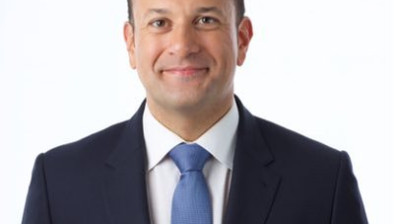Powers of proposed media regulator beefed up with multi-million euro fines and criminal offences

Social media companies will face fines of up to €20 million or 10 per cent of turnover, whichever is higher, for failing to comply with new online safety and media regulation laws.
The government yesterday announced new provisions in the finalised general scheme of the Online Safety and Media Regulation Bill, which will establish a new Media Commission replacing the Broadcasting Authority of Ireland.
The new provisions also include one allowing the Director of Public Prosecutions to seek to hold influential position holders in a designated online service criminally liable in cases where the designated online service fails to comply with a warning notice from the new Online Safety Commissioner.
The Media Commission, which incorporates the Online Safety Commissioner, will be funded through the introduction of industry levies. Traditional broadcasters have already paid these in the past, but video on-demand services and designated online services will pay them for the first time.
The new provisions build on the general scheme announced in January, which ministers said would be one of the first laws of its kind in the world.
Media Minister Catherine Martin said: “I am pleased to see progress in relation to this important piece of legislation. Among other things, the Online Safety and Media Regulation Bill will introduce a fair, proportionate regulatory framework for online safety, encompassing the regulation of certain online services, including social media companies.”
She added: “Under the regulatory framework for online safety, regulated online services will be required to implement measures to protect children and the wider population from exposure to various categories of potentially harmful online content. These categories include cyber-bullying and certain material promoting eating disorders, self-harm or suicide.”
The use of administrative financial sanctions as a potential sanction, subject to High Court approval and any appeal, was already part of the general scheme announced in January.
However, a new provision sets the upper threshold for administrative financial sanctions at €20m or 10 per cent of turnover, whichever is higher. In setting this threshold, ministers said consideration was given to similar measures in place under other legislation such as the Data Protection Act 2018 and the relevant Central Bank legislation.
Ms Martin said: “In some circumstances, the Media Commission will have a role in regulating certain companies with European Headquarters established in Ireland on a pan-EU basis. This includes a number of major global companies such as Apple, YouTube and Facebook. For this reason, potential financial sanctions must act as a suitable deterrent and be sufficient to prevent any companies of this scale gaining an economic benefit as a result of non-compliance.”
Another new provision proposes the introduction of a content production levy on audiovisual media services established in Ireland and those which are established in other EU member states but target audiences in Ireland.
The levy would be administered by the Media Commission but the relevant provisions would not be commenced by the minister until the Media Commission has carried out research indicating its viability.







